ESR USB-C PD 45W car charger ASCC54-P27W12+Q3

Official specifications:
- Type: Car Charger
- USB Ports: 2
- Input: 12-24V
- Output PD: 5V/3.0A, 9V/3.0A, 12V/2.25A
- Output USB: 5V/3.0A, 9V/2.0A, 12V/1.5A
- Total power: 45W
I got it from Aliexpress dealer: ESR Official Store




It arrived in a box with a few specification on one side.

The box included the charger and a instruction sheet.


There is a blue led between the two usb connectors, it will show when the charger is powered.



Measurements
- PD codes: 5V 3A, 9V 3A, 12V 2.25A
- PD outputs starts disabled.
- PD output is coded as Apple 2.4A, DCP
- QC support DCP, Apple 2.4A, QC3, Huwai-FCP, Samsung-AFC
- Minimum QC3 voltage is 3.68V
- Power consumption when idle is 8mA from 12V and 7mA from 24V
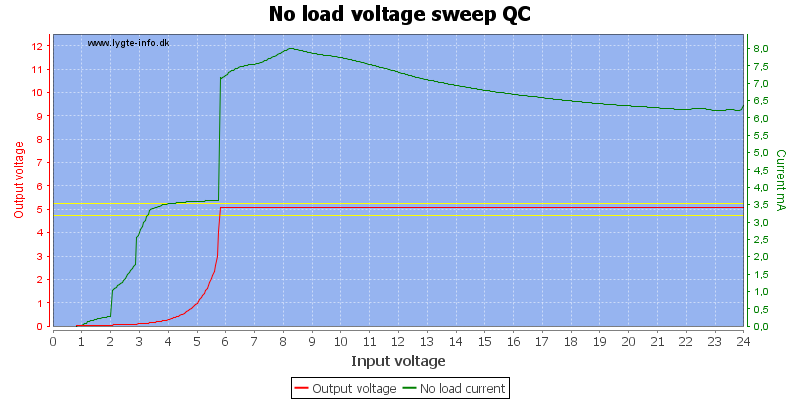
Power consumption when noting is connected to output depends on input voltage.
QC output
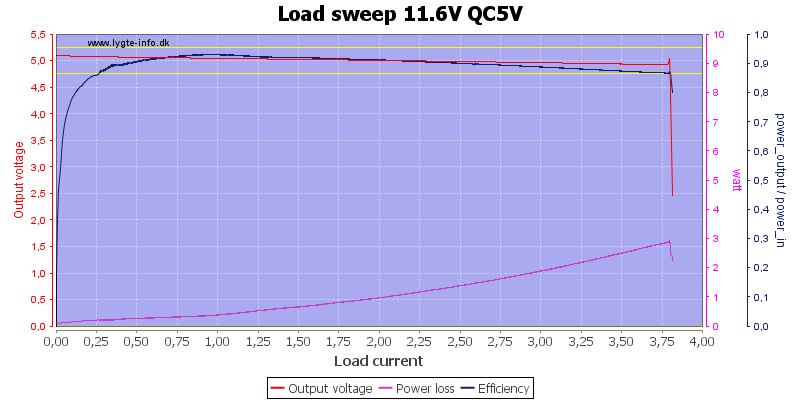
5V output with low input voltage, this looks good up to about 3.8A, this is slightly high for a 3A rated output.
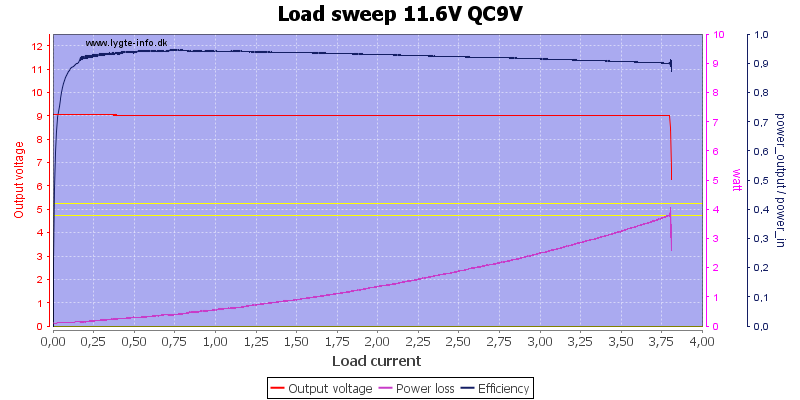
9V output, the same 3.8A
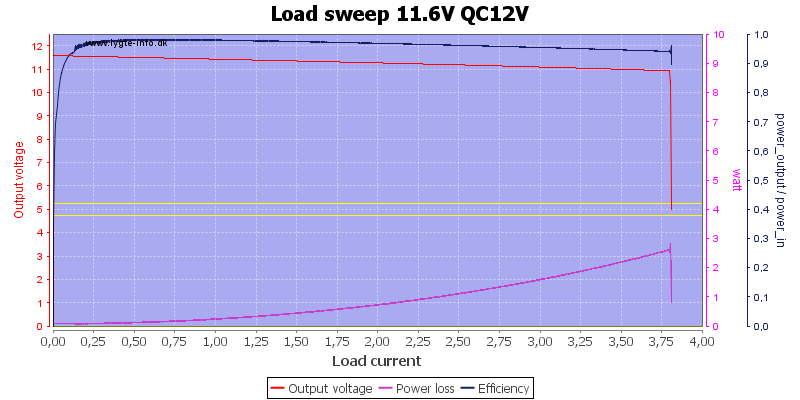
12V output, again the same 3.8A, output is only rated for 1.5A. Output voltage is a bit low, because the input voltage is low and this charger do not have a boost converter.
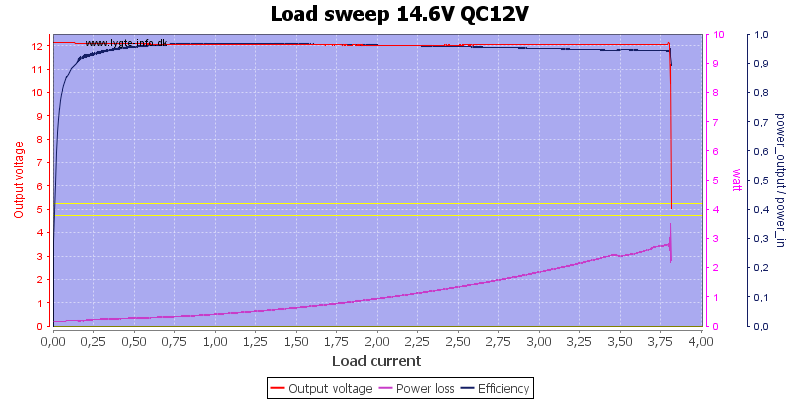
12V output with high input voltage the output is maintained at 12V.
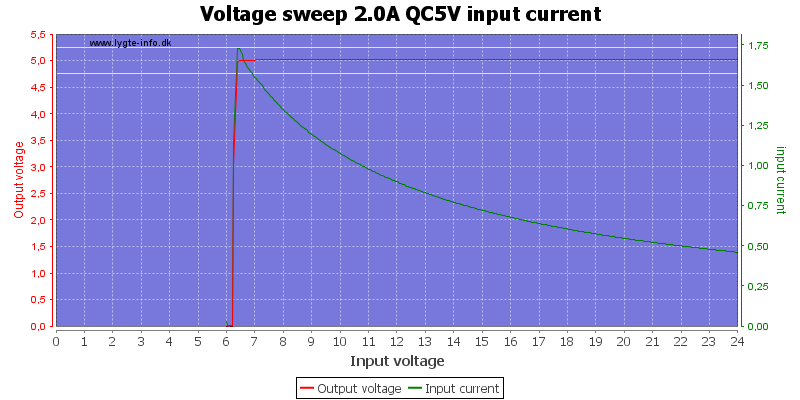
In these curves I sweep voltage from 24V and down with a output load of 2A, this one shows the input current with 5V output.
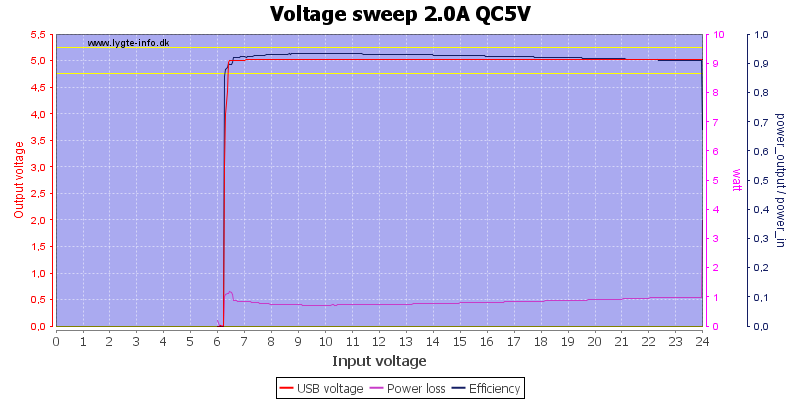
The 5V output is stable down to about 6.2V input.
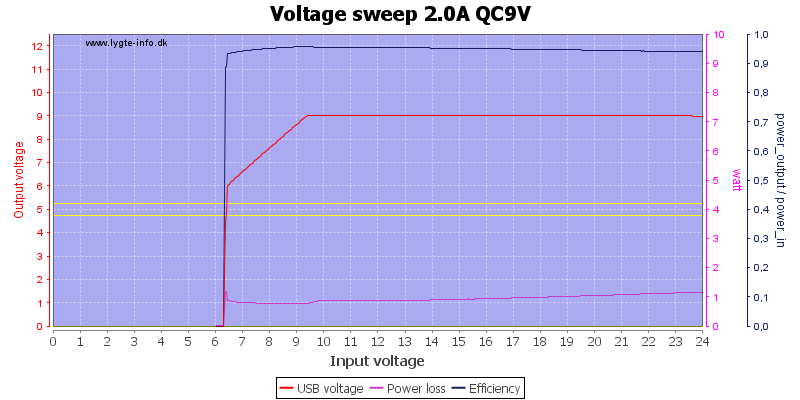
9V output works below 9.3V input
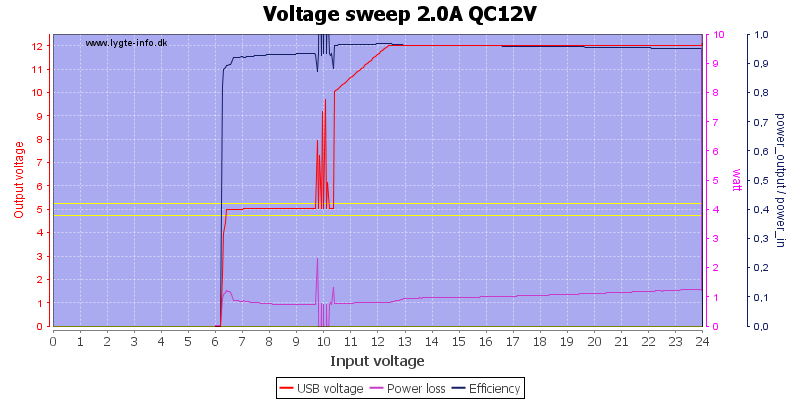
12V output works down to about 12.3V input, the pulses around 10V is attempts to retrigger QC
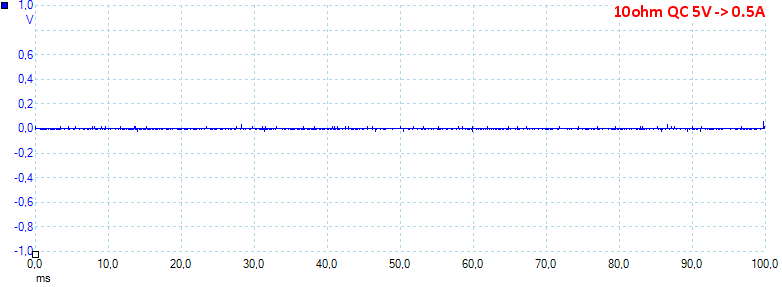
At 5V 0.5A the noise is 3mV rms and 142mVpp
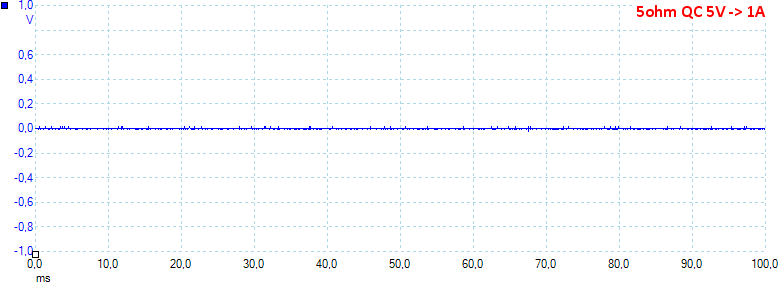
At 5V 1A the noise is 4mV rms and 152mVpp
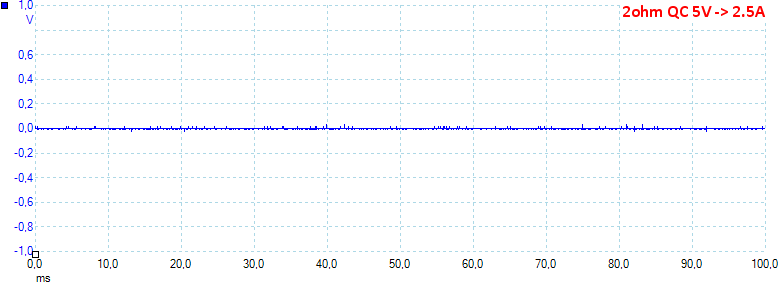
At 5V 2.5A the noise is 4mV rms and 134mVpp
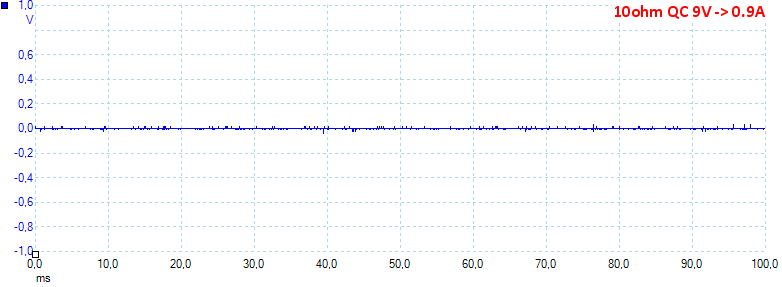
At 9V 0.9A the noise is 3mV rms and 156mVpp
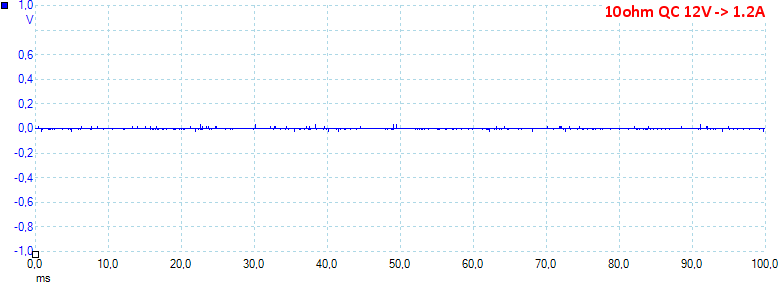
At 12V 1.2A the noise is 6mV rms and 136mVpp.
PD output
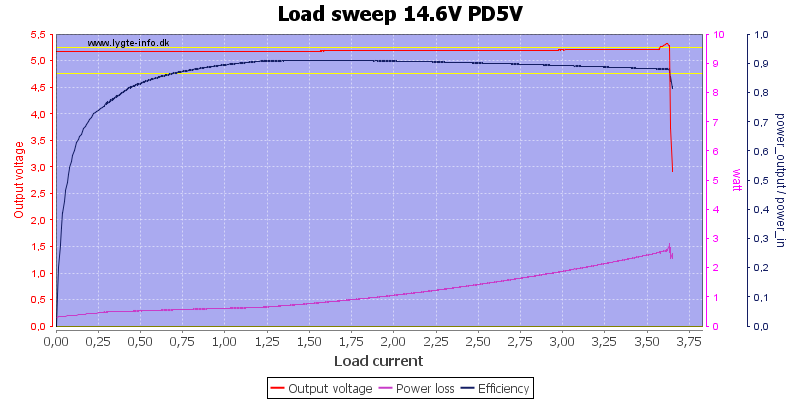
USB-C PD with 5V output and high input voltage can deliver about 3.6A
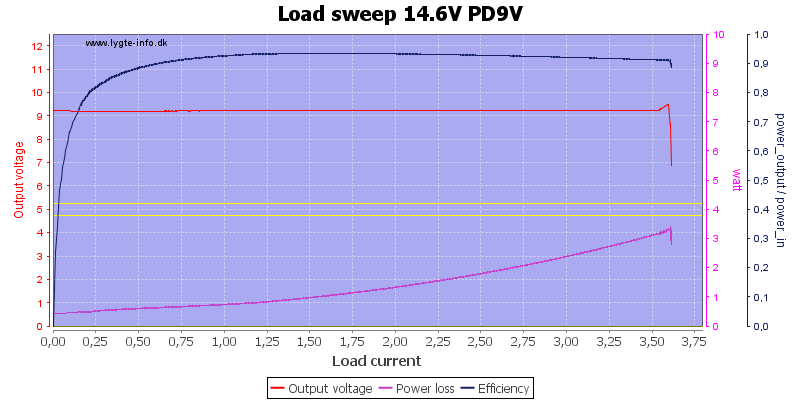
9V is also about 3.6A
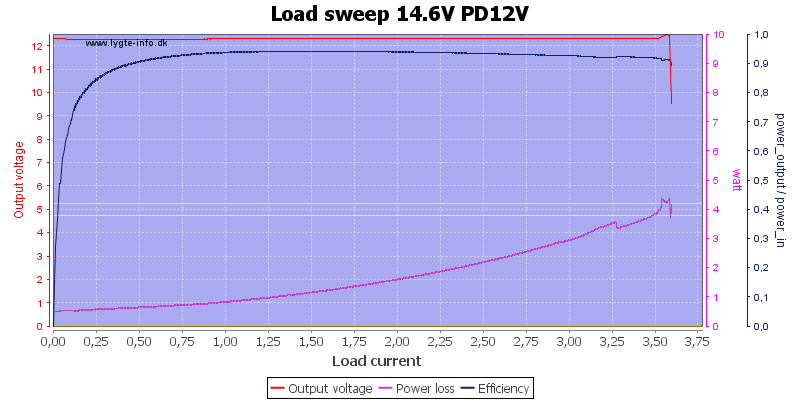
Even 12V looks to be about 3.6A
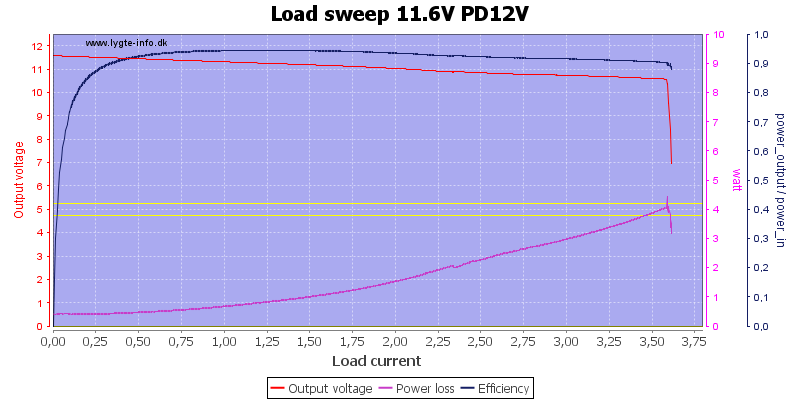
12V output with low input voltage, as expected the output voltage is a bit low.
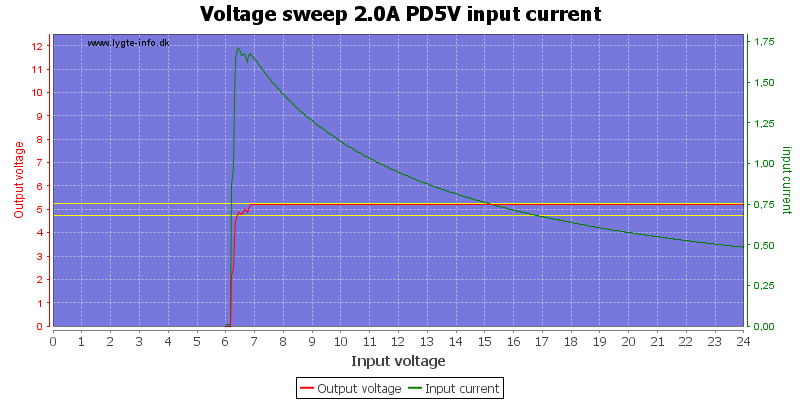
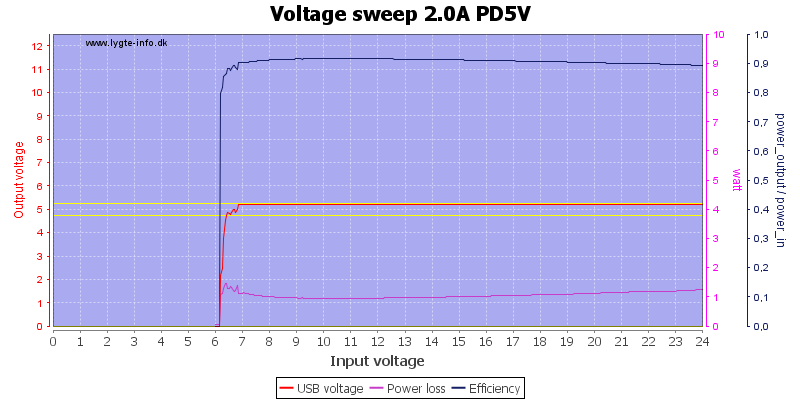
It can maintain 5V output down below 7V input.
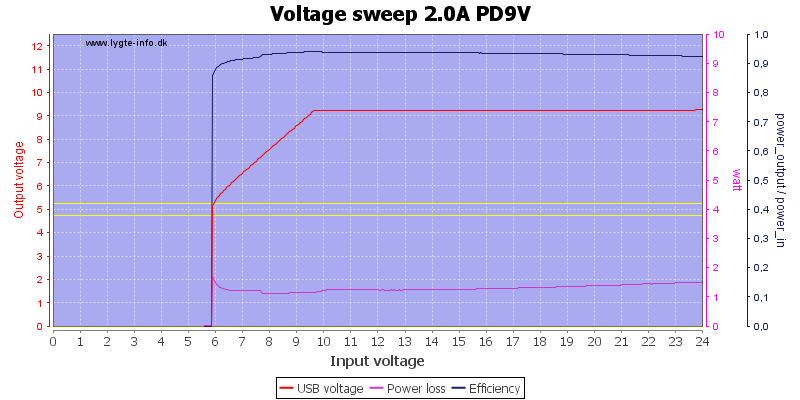
For 9V output it need 9.6V input.
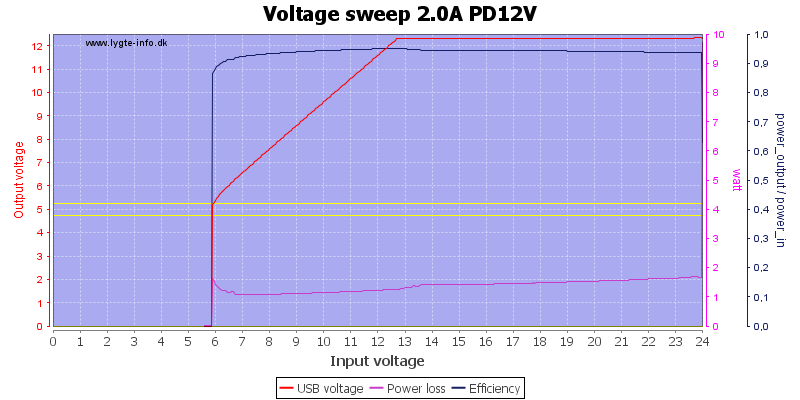
For 12V it need 12.6V input.
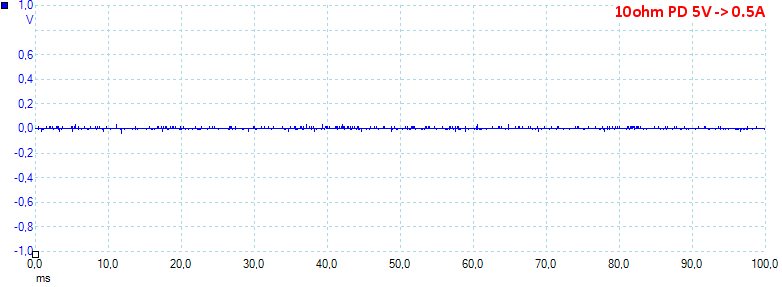
At 5V 0.5A the noise is 6mV rms and 124mVpp
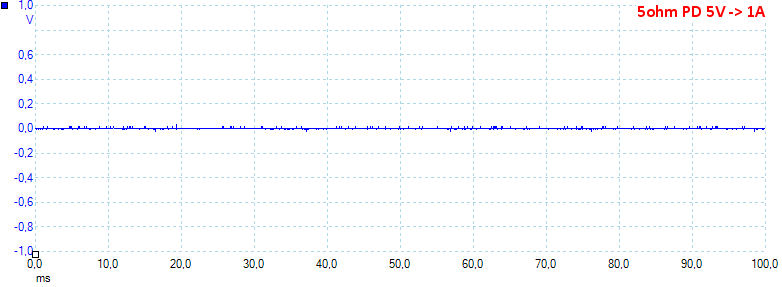
At 5V 1A the noise is 3mV rms and 76mVpp
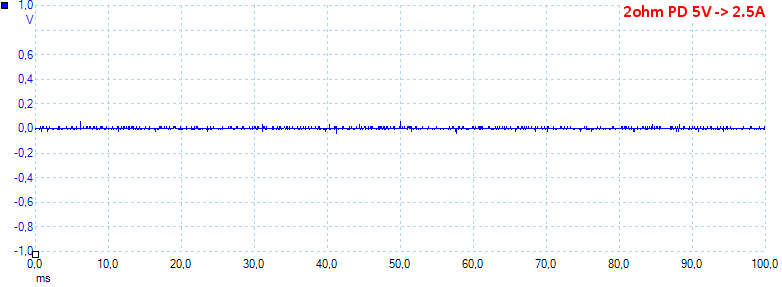
At 5V 2.5A the noise is 5mV rms and 106mVpp
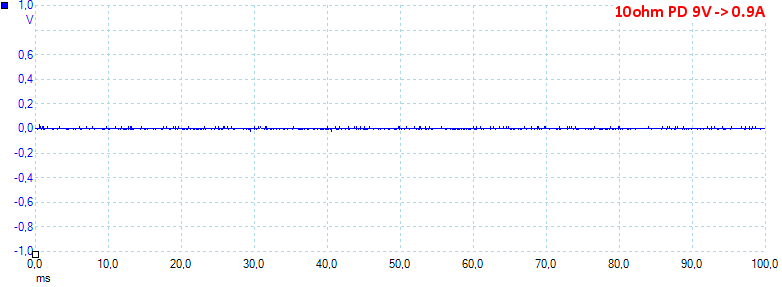
At 9V 0.9A the noise is 3mV rms and 37mVpp
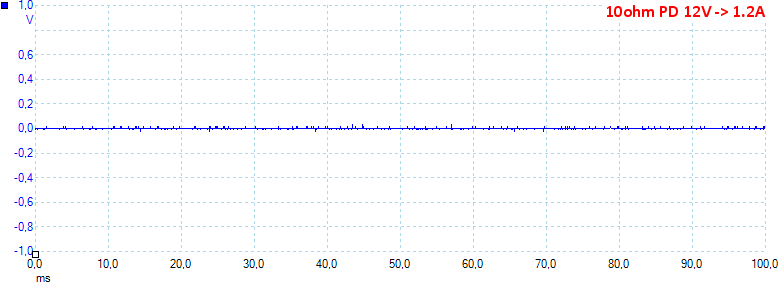
At 12V 1.2A the noise is 10mV rms and 209Vpp
QC and PD full load test
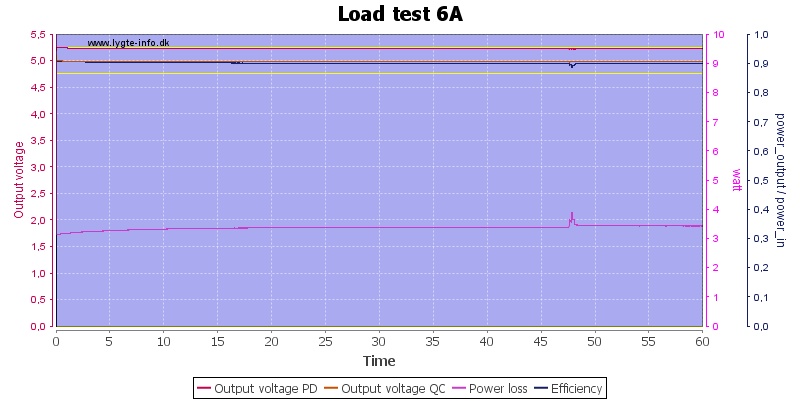
Running at 2x3A output for one hour was not a problem.
The temperature photo below are taken between 30 minutes and 60 minutes into the one hour test.
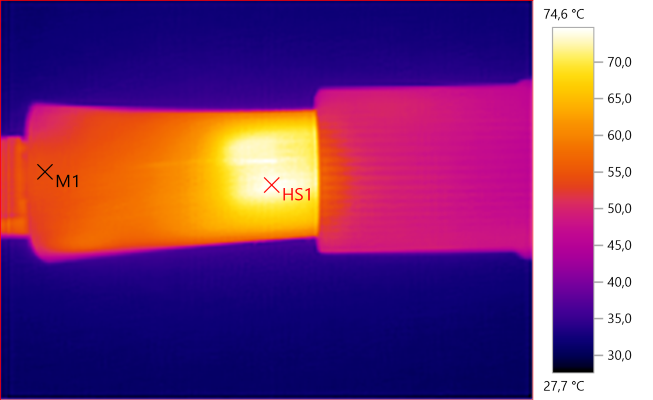
M1: 54.1°C, HS1: 74.6°C
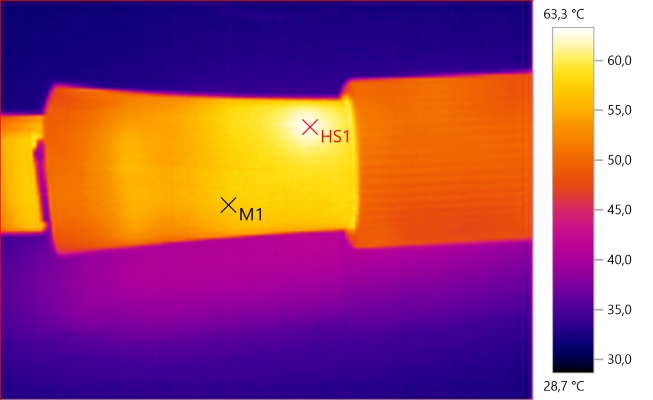
M1: 57.0°C, HS1: 63.3°C
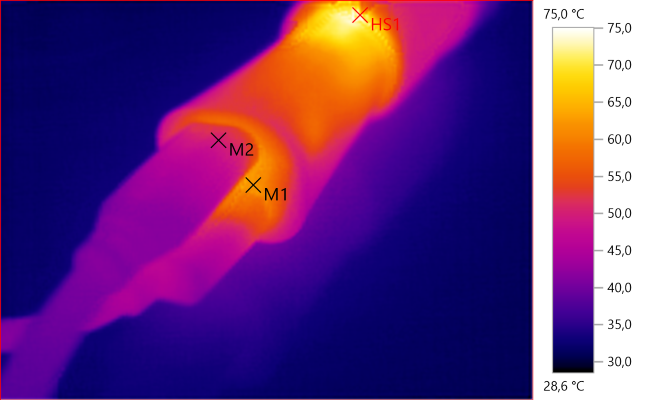
M1: 62.2°C, M2: 50.1°C, HS1: 75.0°C
Tear down
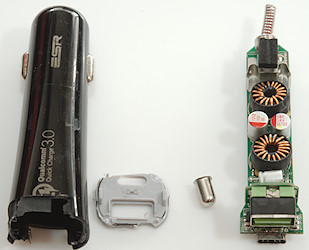
I could not get the lid of, instead I cut a bit around it.

On this side is two inductors, one for each output and a few capacitors. The spring has a wire in it to increase current caring capability.

Looking from an angle it can be seen there is a chip below each inductor, it is the switcher. The USB-A output is on a raiser and there is some parts below it.



The gray part is some heat transfer rubber.



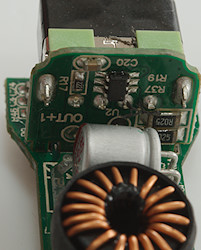

Behind the USB-A QC output is the controller chip (U2: Marked FT4U2K). On the main circuit board below the USB-A output is the PD controller chip.
Being a 12V device there is no need to test with high voltages.
Conclusion
The USB-A output supports all the common fast charge schemes, including Quick Charge.
The PD output support a few fast charge schemes in addition to PD.
It can deliver up to 12V on both ports with a fairly low voltage drop and lots of current.
It is a good USB car charger.
Notes
Index of all tested USB power supplies/chargers
Read more about how I test USB power supplies/charger




















































